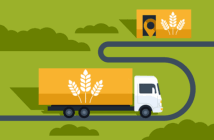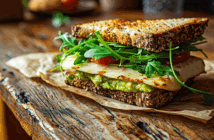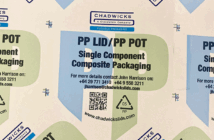By Natalie Martin, 3R Group Materials Innovation Manager
As New Zealand transitions to a low-emissions future, no source of emissions should be ignored.
With the country’s waste responsible for around 4% of our total greenhouse gas emissions, and around 9% of biogenic methane emissions, reducing organic waste can play an important part in that transition.
The intent to tackle this has been made clear by Government with reducing emissions from organic waste featured in the proposed emissions reduction plan and the proposed changes to the waste strategy and legislation.
This comes off the back of the Climate Change Commission’s recommendations to greatly reduce biogenic methane emissions by 2035, with the main source (81%) coming from organic waste in landfills.
Organic waste includes anything containing degradable organic carbon, such as food and green waste, paper, cardboard, and timber. A wide scope and one which most food industry companies will have to deal with.
The Government’s proposals for waste reduction suggests a waste reduction target of between 30% and 50% for business, with both the waste reduction proposals and the emissions reduction plan offering a slew of options for tackling organic waste to landfill.
These range from adjusting the landfill levy to refining food production systems and supporting investment in infrastructure that collects and processes organic material. Bans on organic material to landfill are also proposed, although this will most likely only come once substantial progress has been made in developing alternative options and systems.
Many businesses and organisations are already working in this area – from food diversion, rescue, and education to new products made by repurposing waste. The recent launch of Sustainable is Attainable in Hawke’s Bay (following its success in Timaru), breweries using circular principles with beer and bread, plus nationwide programmes like Love Food Hate Waste are all proof of this.
Food waste is also something everyone can relate to, understand, and get behind, so action can only increase a brand’s social licence to operate.
The food and beverage sector has shown great leadership in the past in tackling similar issues – think the plastic shopping bag ban and moves to reduce packaging or use more recyclable or reusable packaging. I’m confident it can lead here again.
Natalie Martin is the materials innovation manager at 3R Group in Hawke’s Bay. She has a background in food technology and over 10 years’ experience in new product development for FMCG and still supports the industry as a consultant. At 3R, Natalie works in new product development for various waste streams, including packaging.
The information and opinions within this column are not necessarily the views or opinions of Hot Source, NZ Food Technology, or the parent company, Hayley Media.





























































































